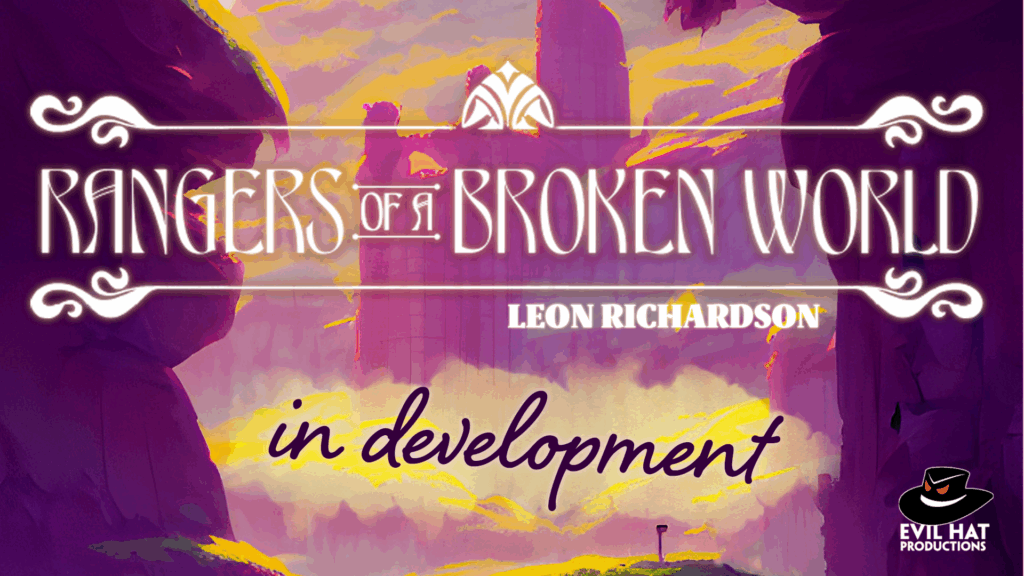Welcome to the ninth post in a series of Design Diaries for Rangers of a Broken World by the creator Leon Richardson:

…
I was running a roleplaying game for some people, one of whom I’d never played with before. He was playing a kind of a rogue archetype, and sure enough, he immediately separated from the party to do a great many things on his own in secret, monopolizing the session and leaving the others with nothing to do!
I wasn’t as experienced a game master then as I am now, so mostly I was stunned and at a loss.
But when I worked on Rangers of a Broken World, I thought I should bring that experience into the game. The result was the Beckoning Infiltrator.
There’s a certain allure to a rogue type character – it’s not my personal favorite, but I know lots of people who play them more than anything else! So, I felt like those people should be represented in my game. But how to avoid the experience I had when running a game for someone who was leaning into the rogue type’s worst impulses?
The result was a class focused intensely on cooperation with other people, loaded with abilities to help them form connections, and use those connections even when the other person isn’t in the scene. No longer is most of the party sitting on their hands while the rogue goes on their own adventure! Now the rogue has the ability to talk to them, to get their insight, and to help them from far away.
Connecting the rogue to other people made it look less like a criminal and more like a revolutionary to me. Now, with precious bonds to other people and a lack of respect for the established order, the Infiltrator was finalized as a freedom fighter, a resourceful character with a wide network. All the classes gained ally pools, and the connection to other people was deepened even further.
Now, the Infiltrator runs the risk of losing their own self in the sea of the people they know, rely on, and protect. The deeper the psychic connection to others, the less grounded they become in the person they have always been, and the greater the danger of losing themselves entirely.
I’m a fan of revolutionary history (I know, I keep bringing up aspects of history in these classes, but I’m just like that) and I was delighted to put a Revolutionary Goddess in the game. She’s not quite a Chaos Deity, but she does stand for the toppling of empire and the rebuilding of the world in a shape that will serve all its people, not just the ones who are part of the empire.
Atossa is the name of Alexander the Great’s mother, who legend says was a powerful witch, the real power behind her son’s ascent to the throne.
And if you’d like to understand the power behind the throne, or just kick the throne over, then maybe playing an Infiltrator is for you!
